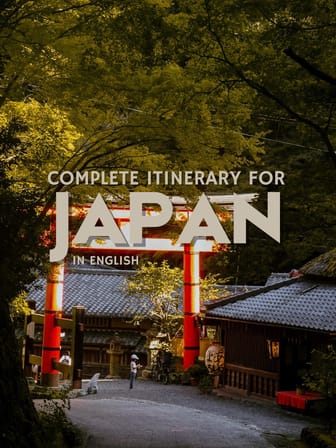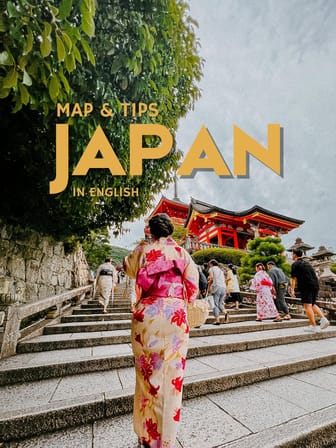Japan Travel Guide
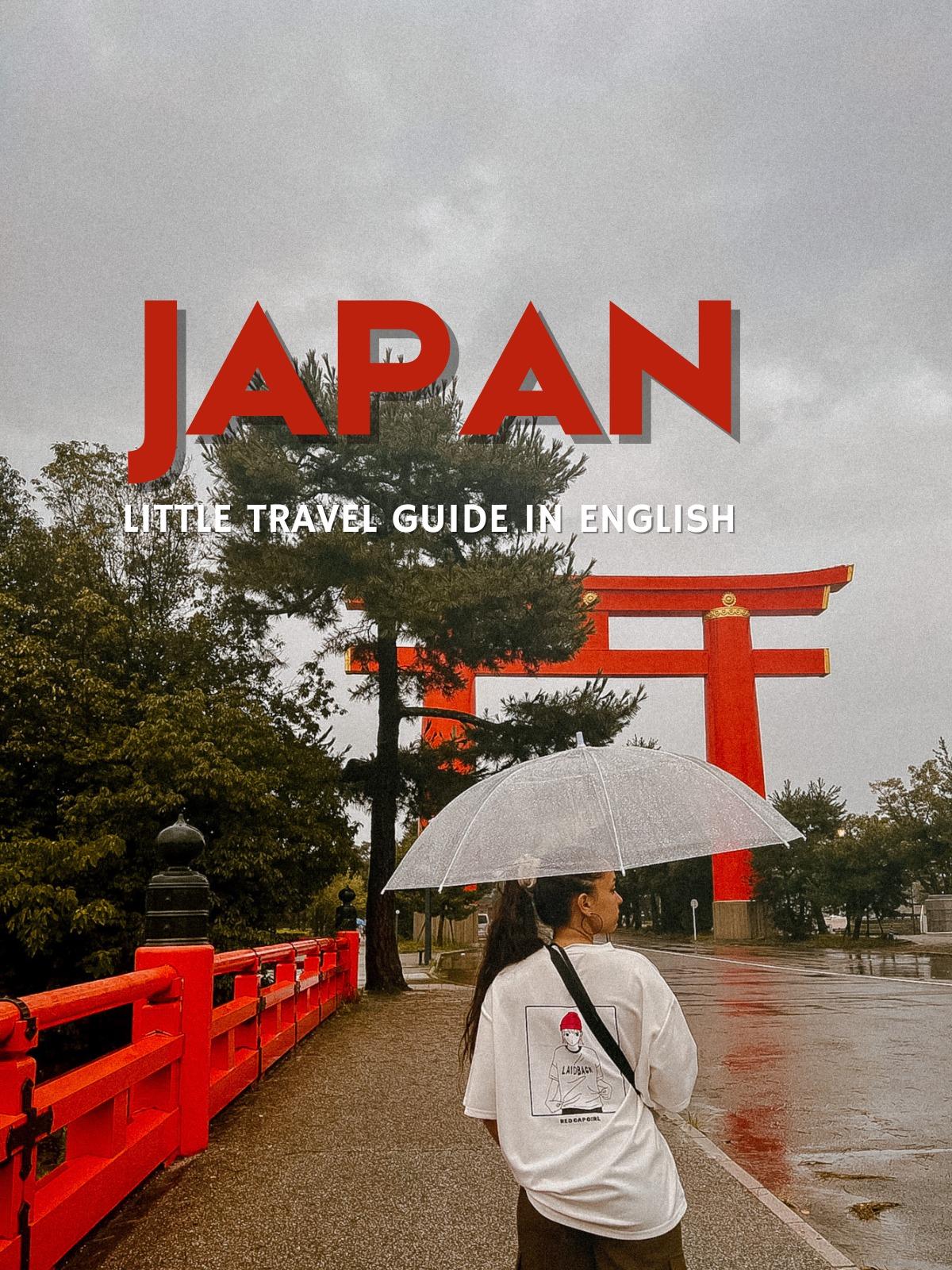
#1 General informations
Capital : Tokyo
Language : Japanese
English Proficiency : https://www.ef.com/wwen/epi/regions/asia/japan/
Money : Yen
Driving in Japan : Left-handed
Telephone code : +81
Peace Index : 9/163 Countries
Police number : 110 Ambulance and fire station : 119
Cost of living : https://www.numbeo.com/cost-of-living/in/Tokyo
#2 Seasons & when to go
Seasonal forecast here : https://www.jma.go.jp/bosai/map.html#5/34.5/137/&elem=temperature&pattern=P1M&term=0&contents=season&lang=en
Winter
Perfect for skiing in places like Saharo, Furano, and Rusutsu, and experiencing Japan under snow, along with hot springs (onsen) and year-end festivities.
Spring
Pleasant temperatures and cherry blossoms in April and May make it peak tourist season, despite crowds at festivals like Takayama Spring Festival.
Summer
High temperatures and regular rains, ideal for climbing Mount Fuji and attending cultural events (matsuri)
Autumn
Optimal weather with mild temperatures and vibrant foliage known as koyo marks the end of peak tourist season.
#3 Security Health & Other
Japan is considered one of the safest countries in the world for travelers. However, exercise common sense and take precaution.
Healthcare standards in Japan are high, but medical expenses can be costly for foreigners. Consider purchasing travel insurance that includes medical coverage before your trip.
Respect for customs and etiquette is important in Japan. Learn basic Japanese manners, such as bowing, removing shoes indoors, and proper chopstick etiquette.
Tipping is not customary in Japan and may even be considered rude. Exceptional service is often included in the price or acknowledged with a polite thank you.
#4 Cities to not miss : The golden road
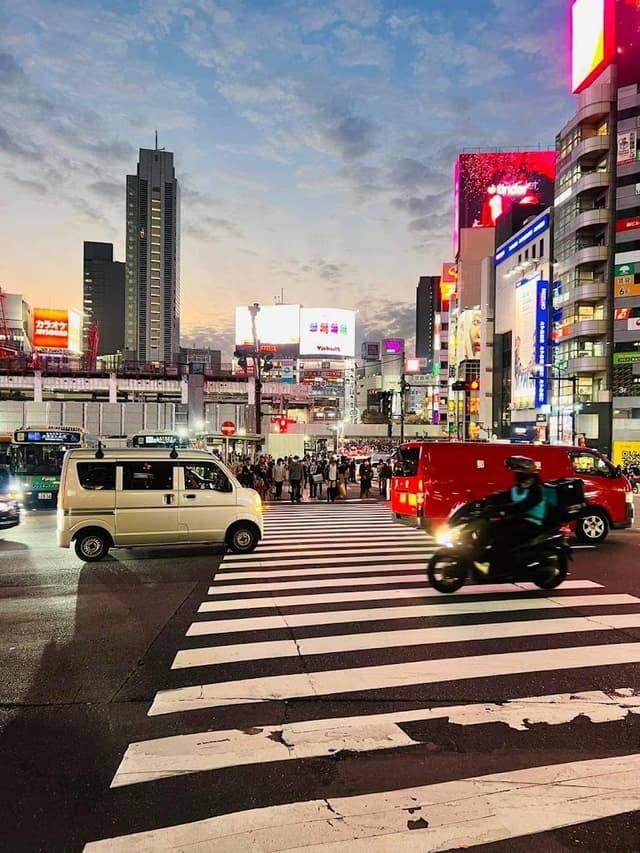
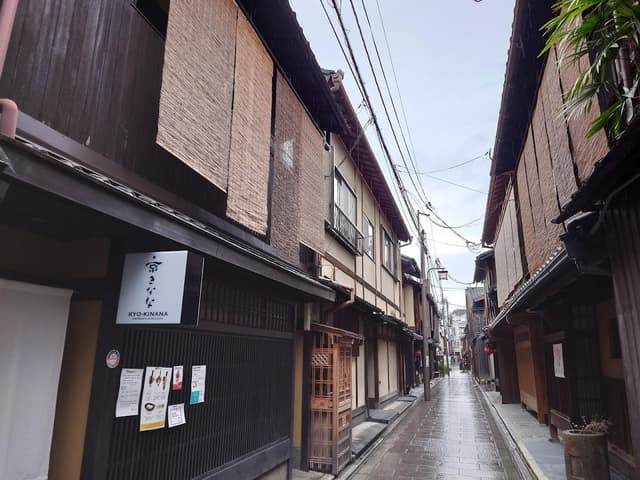

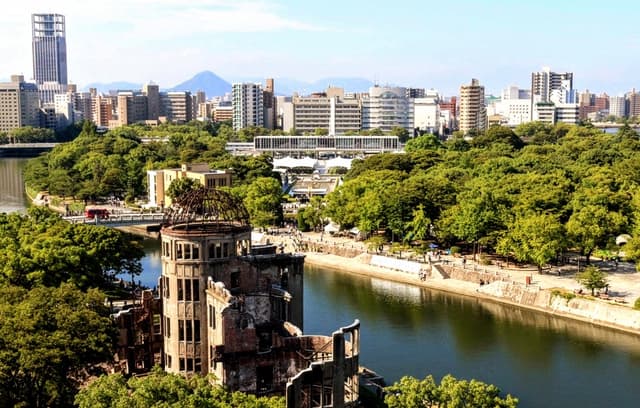
F.A.Q
Your Questions Answered! 🌸 I've been getting loads of questions from you all about Japan, so I've gathered them up and put together some answers right here. Whether you're planning a trip or just curious! 🗾 If you have any other questions, feel free to as them here, I’ll answer if I can and add them.
Any tips on how to find the right area for a trip to Tokyo?
For accommodations, I recommend finding lodging near any station on the Yamanote Line. This line conveniently connects to almost every tourist spot in Tokyo. Additionally, you can consider stations along the Chuo, Sobu, and Ginza Lines for easy access to various attractions. If you can find accommodations near these train or metro stations, it will save you a lot of time traveling around the city. For the Sobu and Chuo lines, aim for stations between Tokyo and Akihabara, extending to Higashi Nakano. Choosing stations within this range will keep you relatively close to central Tokyo and avoid lengthy commutes.
Are there any good recommendations for food in Tokyo,Osaka, and Kyoto?
There are so many amazing restaurants in Japan! What I would recommend is to follow your instincts and eat what you're craving. In Tokyo, I wouldn't recommend eating near Shibuya, Shinjuku, or Akihabara. Not because the food isn't good, but because these areas are usually crowded with long lines, and prices tend to be a bit higher due to the heavy tourist traffic. Honestly, it's incredibly rare to have a bad meal in Japan! Restaurants where older people are cooking are usually very good. For example, in Kyoto, there's one called White Lover that comes to mind. Also, I'd advise against eating in "Omoide Yokocho" in Shinjuku, Tokyo, and similarly, "Pontocho Alley" in Kyoto. While these places are beautiful and the food isn't bad, they tend to have higher prices and taxes due to their touristy nature. If you really want to dine there, I recommend checking online reviews on platforms like TikTok or Google Maps beforehand to find the best restaurant options. By the way, in Osaka and Tokyo, my favorite restaurant is called Niku-gekijo, especially for their chicken neck dish!
Should I sleep in Osaka or Kyoto to visit Kansai area ?
My recommendation would be to split your stay between Osaka and Kyoto. On the days you plan to explore Kyoto, stay in Kyoto, and on the days you want to experience Osaka, stay there. This way, you can fully immerse yourself in both cities and enjoy their unique atmospheres. Plus, Nara is only 30 minutes away, so it's easily accessible regardless of where you're staying. Honestly, I love both cities. Osaka is fantastic if you're looking for vibrant nightlife with its abundance of bars and nightclubs. However, depending on your accommodation in Osaka, it can be just as peaceful as Kyoto. If you prefer to stay in just one location, I recommend finding lodging near Kyoto Station or Umeda in Osaka. From Umeda, you can easily access both cities, as Kyoto is only a 30-minute train ride away. Similarly, Kyoto Station offers excellent connectivity to all major tourist attractions via buses and trains. Shin-Osaka could also be an excellent option since it provides access to major Osaka trains, subways, and the Shinkansen (bullet train). But honestly, the best option would be to have accommodation in both cities, for example 2 days in Kyoto and 3 days in Osaka. Keep in mind that the train fare between Osaka and Kyoto is approximately 590 yen each way, so multiple trips could add up. Additionally, consider the cost of transportation within each city as you plan your itinerary.
Due my schedule June would work best, but I’ve seen its the start or rainy season. Do you recommend traveling then?
Honestly, during the rainy season, it's not as bad as it may seem. Depending on your luck with the weather and where you choose to go, it doesn't necessarily rain every single day. When it does rain, there tend to be fewer tourists outside, which can create a more serene atmosphere. Additionally, experiencing the temples and other attractions in the rain can be quite enchanting. If you come prepared with an umbrella or raincoat and don't mind a bit of rain, visiting in June can still be enjoyable! And do not fear typhoons too much. Typically, they only bring heavy rain for a day, and as long as the wind and rain aren't too severe, it's still possible to venture outside and explore.
How did you live in Japan for a year?
How much did the whole year cost ? How do you find the budget for traveling for a whole year?
My monthly expenses were approximately $1000, including rent, living expenses, and transportation, totaling $12,000 annually. Additionally, there was my school fees of about $5000, my total expenses was approximately $17,000.
During my time studying in Japan, my main focus was on academics, which naturally came with expenses like tuition fees, textbooks, and other academic materials. Living abroad, like in Japan for example, isn't all that different from living back home. You still have your rent, transportation, and living expenses to deal with; it's just the cultural aspect that sets it apart, along with, of course, any souvenirs or goodies you might want to pick up. Despite the demands of my studies, I was determined to explore as much of Japan as possible. I carefully balanced my academic commitments with travel opportunities, making sure not to compromise my studies. I used savings I had accumulated before my trip to cover travel expenses, and I maximized weekends and holidays to explore different regions of Japan. This allowed me to fully immerse myself in the culture and beauty of the country while pursuing my academic goals.
The Budget for Travelling, (accommodation, transport.. ) My experience
As for the budget breakdown, for last summer, my expenses were as follows: Round-trip ticket: around 1200 euros Accommodation: 500 euros Transportation: 400 euros Restaurants: approximately 300-400 euros (not calculated precisely) Leisure activities and souvenirs: around 400 to 500 euros In total, approximately 2900 to 3100 euros.Tips to make it cheaper : - Accommodation: Research and book accommodation well in advance to secure the best deals, especially during peak tourist seasons. Consider alternative options like guesthouses, capsule hotels, or Airbnb to save money on lodging. Look for accommodations with kitchen facilities to prepare some of your meals, which can help cut down on dining expenses.
- Transportation: Look for discount tickets or 1 or 2 day passes. Look for JR regional Pass. Travel by night buses for long distance. Consider walking rather than a one or two stop stations.
Any tips for living in Japan in long term?
I'm not sure if you speak Japanese or if you're going there for that purpose or not. But initially, if you don't speak it, I highly recommend learning the language. It's much easier to integrate and converse with people. Japanese people are often very pleased to see foreigners mastering the language. Personally, I went to school to learn, but even just being in the country makes it much easier and more natural to learn conversational basics.
Still quite basic, but abide by the rules even if they seem "stupid" to you. Typically, not crossing on a red light, etc. It really makes a difference!Again, basic advice, but make the most of your timethere, save money, enjoy the whole country, travel as much as you can, try out as many things as you can. I thoroughly enjoyed my time, but I set some barriers for myself and I regret it a bit. Looking back, I wish I had taken more advantage and seen as much as I could.I'm not sure if you're into sports or not, but I'd advise taking care of yourself, join a sports club or a gym! Of course, if you feel like it, but personally, I didn't do any sports and quickly gained weight 😂 (given that I wasn't holding back on the food, eating ice cream every day, it was a disaster). So, don't forget SPORT!Regarding accommodation, I'm not sure if you've already found something or not, or if you're staying with a host family, in a dorm, etc. On this point, I don't know much as I stayed with a family, it was much simpler. But I've seen quite a few ads like this one , so maybe it can help you.
My best advice will be : Budgeting: Determine your monthly expenses including rent, utilities, groceries, transportation, and leisure activities. It's essential to create a budget and stick to it to ensure you don't overspend. Part-time Work: Consider taking up part-time work to supplement your income. (if you have the visa for it) Cooking at Home: It's not only cost-effective but also allows you to explore local markets and ingredients. Traveling Smart: When traveling within Japan, look for budget-friendly accommodation options such as hostels or guesthouses. Consider using transportation like night buses. Saving in Advance: If possible, save money before your trip to cover initial expenses.
Can you tell me mains festivals in summer in Kansai / Tokyo ?
Kansai Region: Gion Matsuri: throughout July.Tenjin Matsuri: Osaka’s major festival, held on July 24th and 25th. Awa Odori: in Tokushima City, generally around August 12th to 15th. Daimonji Gozan Okuribi in Kyoto City, around mid August . Nara Tokae: from late July to early August Osaka Tenmangu Taisai: around July 24th and 25th. Nanigawa firework in Osaka, early AugustTokyo and Surrounding Area: Sumida River Fireworks Festival: The biggest firework along the Sumida River, in late July or early August. Koenji Awa Odori: in late August. Asakusa Samba Carnival, in late August. Shibuya Bon Odori , in mid-August. Ueno Summer Festival in mid-August. Edogawa Fireworks Festival: in late July.
Important things to pack for 3 weeks in Japan ?
Here is my advice on what to pack for 3 weeks For clothing Lightweight, breathable clothes for the warmer months, and layers for cooler weather. - Comfortable walking shoes for exploring cities very important, you walk a loooot in Japan. Swimwear if you plan to visit pools or beaches. I generally do not pack a lot of clothes as I love shopping there, but it really depends if you want to buy clothes and if you will have time for. 2. Of course but your travel Documents : Passport and visa (if required). & Printed copies of your passport just in case. DO not forget to do the customs declaration online here : https://vjw-lp.digital.go.jp/en/ 3. For Electronic device A universal adapter if you have one, if not You can just buy it there i's cheaper ( like in a 100 yens shop, or electronic shop) Portable power bank for recharging devices on the go. 4. Skincare & so I do not pack Toiletries (shampoo, conditioner, toothbrush, toothpaste, etc.) and buy them there directly. Sunscreen, especially if you go summer - Prescription medications if needed.Try not to overpack! The more space you leave in your luggage, the more room you'll have for all those amazing souvenirs you're going to find. Trust me, the last thing you want is to be weighed down by unnecessary stuff when you could be filling our bags with incredible memories and treasures from Japan.
Is the JR pass a good deal ?
Since the prices has been raised, it really depends on your itinerary, how long you stay, and where you are planning to go.For exemple if you go 2 weeks and planning to go in Tokyo Kyoto Osaka, then it’s cheaper to buy just the Shinkansen ticket for the round trip between Tokyo and Kyoto.Alternatives ways to JR PASS :Night buses : cheaper, and confortable. Regional JR Passes that allow you to visit one region (like Kansai region for exemple )Use the Plane instead.Rent a Car if you can drive. The Seishun 18 ticket (青春18きっぷ) is a unique discount pass available three times a year—during summer, winter, and spring. This pass offers up to five non-consecutive days of unlimited travel on JR local and rapid trains, providing a remarkably affordable means to leisurely explore Japan.
Do I need to reserve a seat even if I have a JR PASS ?
Yes, I would recommend booking in advance if you don't want to end up standing. It depends on your destination, but typically, trains tend to be crowded, and the carriages with available seats fill up quickly. You can visit a JR station one or two days before your journey to inquire about seat availability. If you're heading to Mt. Fuji, I highly recommend booking three days in advance. It's usually fully booked most of the time.
What are some things we need done before getting In Japan ?
Before arriving, it's crucial to complete the customs clearance online as it's much simpler, and it provides you with a QR code for immigration and customs declarations. You can do this process here : https://vjw-lp.digital.go.jp/en/notice240125/index.html Other than that, there's not much else to prepare. You don't need to carry cash and exchange it at the airport. The easiest approach is to have a card that you can use internationally with no fees, allowing you to withdraw directly at convenience stores like Seven Eleven or Family Mart.
Would it be possible to have some beaches in Japan?
In the Kansai region (Osaka, Kyoto), there's Suma Beach in Osaka. In the Tokyo region, there are: Odaiba Beach, Kamakura Beach, and Kasai Rinkai Beach. & The best beaches are definitely in Okinawa. There are also places like Spa World, Solaniwa Onsen in Osaka, or Oedomonogatari in Tokyo, which are places with pools, hot springs, and spas.
Would it be possible to have some onsen in Japan?
Kusatsu Onsen (Gunma Prefecture) - Known for its high-quality sulfuric hot springsKinosaki Onsen (Hyogo Prefecture) - This historic onsen town features seven public bathhouses (soto-yu) Kyoto, Kurama Onsen - north of Kyoto, Kurama Onsen offers outdoor baths surrounded by lush greenery and tranquil forest views In Osaka like I said, Spa World or Solaniwa Onsen. & In Tokyo you have Thermae-Yu Tokyo - Located in Shinjuku with multiple types of baths, saunas, and relaxation areas, making it convenient for visitors staying in central Tokyo.
What’s the perfect route for 20 days in Japan ?
The perfect route depends on where you land (Tokyo or Osaka) to organise your itinerary. Then it also depends what you likes etc.. and if it’s your first trip. For a first trip I will recommend the golden route : Tokyo, Osaka, Kyoto and Hiroshima. Then you can consider cities that are around like Nara, Kobe in Kansai, Nagano, Mt. Fuji or Nikko. Planning an itinerary takes times especially with accommodations. I would recommend 10 days in the Kansai Area and 10 days in Tokyo area ! Rafting a comprehensive itinerary demands careful planning, particularly when it comes to securing accommodations and transportation, especially for popular destinations like Tokyo, Kyoto, or Hiroshima. Planning ahead is essential to ensure a smooth and enjoyable journey. That's why I offer my meticulously crafted itinerary to streamline your travel experience and make the most of your time in Japan.
If I go there in March, are your itineraries are good for me?
My itineraries cover all seasons and cater to various interests—whatetver you seek. Specifically centered around the 'golden road' destinations like Tokyo, Kyoto, Osaka, Nara, Hiroshima, and Kobe, these itineraries emphasize key tourist attractions while also offering off-the-beaten-path recommendations. If it's your first time visiting and you're eager to cover all the main attractions, my itineraries are a perfect fit. They're crafted to provide a comprehensive experience of the key highlights in each destination.
The home for unique & authentic travel
